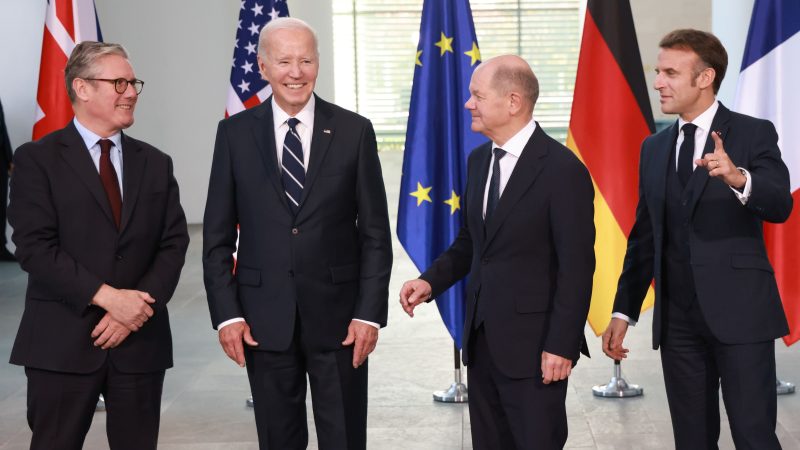
Global Diplomacy: Biden Confronts Middle East and Ukraine Crises in High-Stakes Meetings
In a series of high-stakes meetings, President Joe Biden recently held discussions with world leaders as global tensions continue to escalate, particularly in the Middle East and Ukraine. The backdrop for these interactions is fraught with uncertainty and the need for diplomatic finesse as the international community strives to address pressing issues.
The meeting between Biden and Russian President Vladimir Putin was one of the most closely watched events. Tensions in Eastern Europe have been rising, particularly with Russia’s increased military presence near the Ukrainian border. The two leaders engaged in discussions about strategic stability, arms control, cybersecurity, and regional conflicts, with both sides emphasizing the importance of open lines of communication to prevent further escalation.
In the Middle East, Biden’s talks with Israeli Prime Minister Naftali Bennett and Egyptian President Abdel Fattah el-Sisi sought to address the recent uptick in violence and instability in the region. The leaders discussed the Israeli-Palestinian conflict, security cooperation, and efforts to promote stability and economic development in the region.
Another key focus of Biden’s diplomatic efforts was his meeting with Chinese President Xi Jinping. The meeting aimed to address the complex relationship between the two countries, which is characterized by competition and cooperation across economic, security, and human rights issues. Both leaders discussed the need for managing their differences constructively while seeking areas of common interest.
In a separate meeting with Japanese Prime Minister Fumio Kishida, Biden reaffirmed the strong alliance between the two countries and emphasized their shared commitment to security, economic prosperity, and democratic values. The discussions included topics such as regional security challenges, climate change, and economic cooperation in the Indo-Pacific region.
Overall, Biden’s meetings with world leaders underscored the importance of diplomatic engagement in navigating the complex and challenging global landscape. By engaging in candid and constructive dialogues, leaders aim to address pressing issues, manage conflicts, and build consensus on shared priorities. The outcomes of these meetings will play a crucial role in shaping international relations and addressing the uncertainties that lie ahead. As global challenges continue to evolve, diplomatic efforts and international cooperation remain essential in promoting peace, stability, and prosperity on the world stage.
